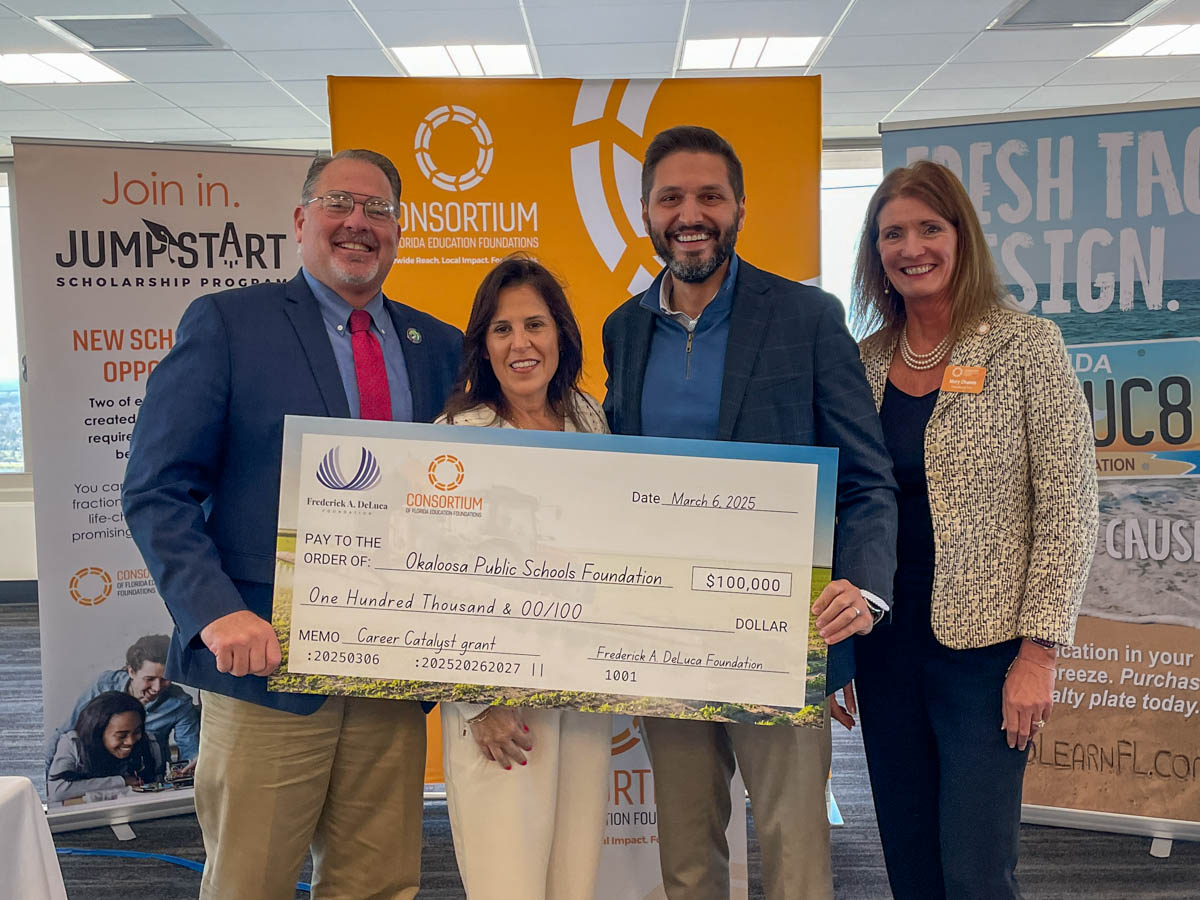Florida’s economy is growing fast, and so is the demand for skilled talent. To meet that need, the Consortium of Florida Education Foundations (Consortium) and the Frederick A. DeLuca Foundation are partnering to invest $100,000 in a new, innovative career academy or career and technical education (CTE) program in rural and underserved communities that will prepare students for the state’s highest-demand, highest-paying jobs.
The grant will be awarded to one local education foundation, in partnership with its school district, to launch or expand a program. Funding will be distributed over two years and will directly connect students to high-skill, high-wage industries critical to Florida’s long-term economic strength.
“Florida can’t compete globally without a strong, future-ready workforce,” said Amity Schuyler, President & CEO of the Consortium. “Education foundations are at the center of that solution, aligning K–12 programs with workforce needs, breaking down barriers for students, and creating direct pathways from the classroom to high-demand careers. This grant is one more way we’re driving Florida’s economic engine.”
This new opportunity builds on the strong history of collaboration between the Consortium and the Frederick A. DeLuca Foundation. In 2022, the Foundation made its first statewide investment in Florida, in partnership with the Consortium, launching the Explore and Excel in Healthcare Career Pathways program. The program has already impacted over 11,500 students in 14 school districts, providing middle and high school students with hands-on experiences in healthcare careers while promoting the completion of healthcare credentials through high school career academies.
The Career Catalyst Program, of which this grant is a part, made its inaugural award to the Okaloosa Public Schools Foundation. That $100,000 investment is creating the Growing Laurel Hill Academy, an innovative agricultural education program at Okaloosa Public Schools. The new program focuses on horticulture, Agri-technology, and real-world experiences such as greenhouses, aquaponics, and Agri-management internships. Serving 150 students from this rural community, 69% of whom qualify for Free and Reduced Lunch, the academy will open pathways to high-demand careers in agriculture while connecting students to local and regional workforce opportunities.

